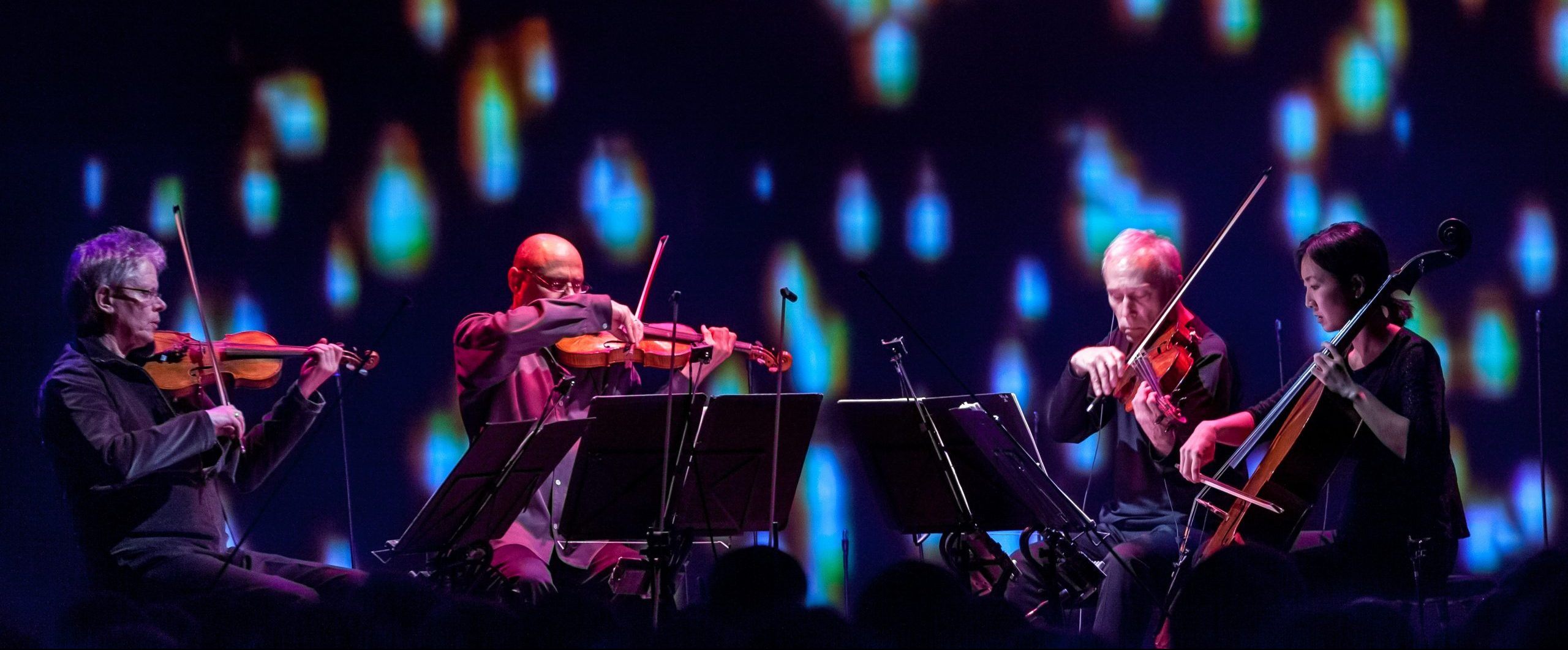Many paths led Kronos Quartet founder, David Harrington, to become one of the most influential musicians of all time with a discography over fifty albums deep. An unlikely source was his grandma’s lilies, which she collected through the mail from people all over the world.
“[The lilies] introduced the idea that the map was larger than Portland, Oregon,” says Harrington. “I started hearing music from a variety of places as a teenager, and that’s something that continues. The desire to learn more.”
The music of Kronos Quartet is much like those lilies. They explore seeds of music from different cultures, traditions and mindsets. As they cross-pollinate, something new and different is created.
“What happens to me is the influences keep growing in number,” says Harrington. His first was at the age twelve when he heard the Budapest String Quartet perform Beethoven’s Opus 127 in E Flat Major. “That opening chord just totaled me out as a twelve-year-old kid. I thought, ‘I love this, I have to learn how to do it.’ Every piece that we will play in Fort Collins, that feeling has happened.”
Not content to just receive those seeds and watch them grow, Kronos Quartet has embarked on a project to send out their music for anyone to play: Fifty for the Future. “What we want is to be sure that other quartets, especially young quartets, have direct and immediate access to music that we play. The idea is that anyone, performer or listener, can go onto the Kronos Quartet website and learn more about the fifty composers, and download the music in parts.” Two songs that will be played in Fort Collins will be from this Fifty for the Future repository, including one piece developed in collaboration with Angelique Kidjo.
One of the greatest influences for David Harrington and Kronos Quartet was George Crumb’s “Black Angels,”—a haunting and disturbing piece that is a pivotal part of the contemporary classical canon—is largely unavailable in most music libraries, and when it is, the score is unwieldy. For Harrington, the piece was transformative. “All of the sudden, in an instant, the world made sense,” he tells. “I found my song. I needed to get a group together, that’s why I started Kronos Quartet. Maybe people will hear songs from Fifty for the Future and have the access we didn’t have.”
Since the first piece Kronos Quartet ever played and would later go on to record was Crumb’s opus, it gave Harrington the opportunity to interview the renowned composer. He asked Crumb to tell him what he was thinking while writing the piece, as the most widely held interpretation of the piece is that it anti-Vietnam War. Crumb responded, “There were strange things in the air.”
Harrington was struck by that. “It’s a musician’s responsibility and our jobs to hear those strange things in the air and give them musical form,” says Harrington. “That’s what we can provide society and our world.”
Kronos Quartet is constantly creating with an eye for the future. Who knows what their future influences will be, and what startling and challenging creations they will shape with their unique soundscapes. One thing is for certain, like the lilies and the first two chords of Beethoven’s Opus 127, the music will be powerful.
See Kronos Quartet, one of the most celebrated and influential groups of our time, as they perform with their signature spirit of fearless exploration and creativity on February 11, 2022, at 7:30 p.m. Seats start at $20 and are available at LCtix.com or by calling 970-221-6730.
